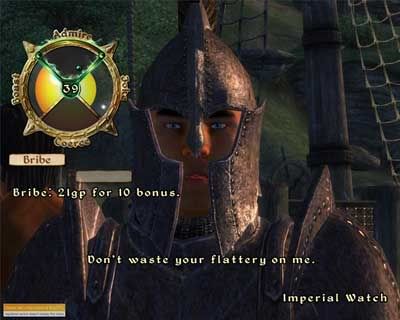DonTadow
First Post
We've heard bits and pieces of a new social system, but have not seen anything on it. I have seen a bit of stuff go across the 4e desk and a lot of things seem to be, keep the original number, and add bonuses or multipliers to adjust circumstances.
So putting the hints and this tidbit together I believe the new social system will account for a diplomacy check (or equal skill) vs the will of the opponent. The will is adjusted by by a multiplier based on circumstances such as hostility, plausibility, consequences etc. This seems to work with the hint that "social skills would not effect whether a person role plays and then roles the diplomacy check or the other way around". It also fits in with the add a multiplier system set up for other things.
Could I be right in my line of thinking?
So putting the hints and this tidbit together I believe the new social system will account for a diplomacy check (or equal skill) vs the will of the opponent. The will is adjusted by by a multiplier based on circumstances such as hostility, plausibility, consequences etc. This seems to work with the hint that "social skills would not effect whether a person role plays and then roles the diplomacy check or the other way around". It also fits in with the add a multiplier system set up for other things.
Could I be right in my line of thinking?




